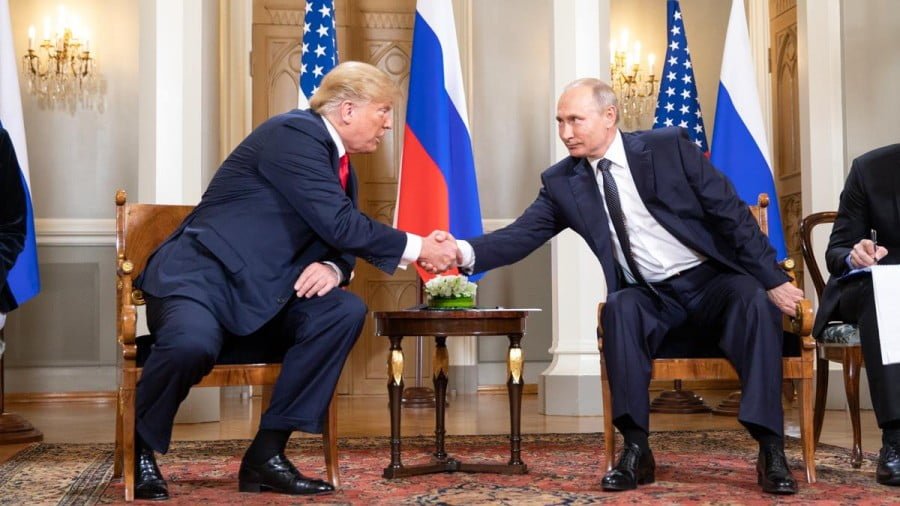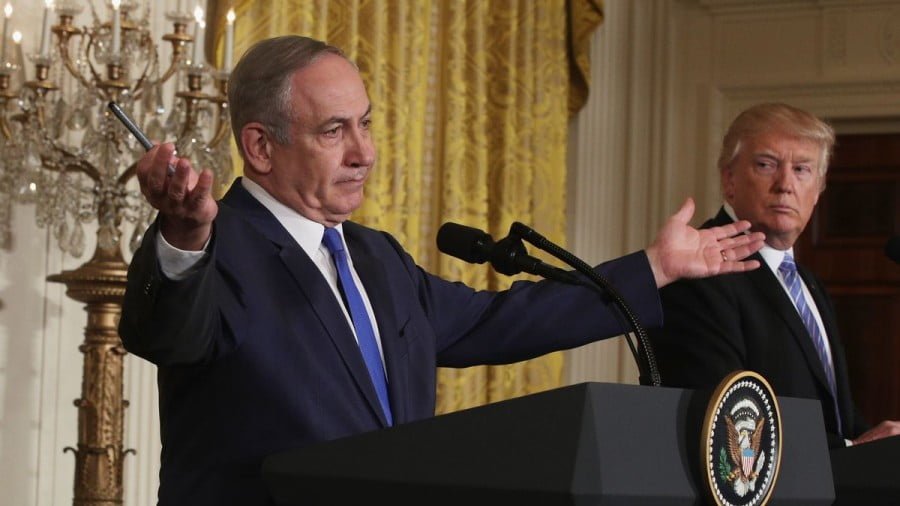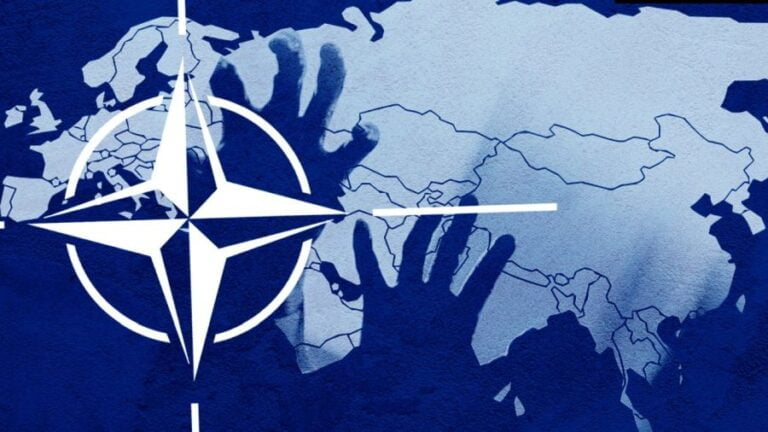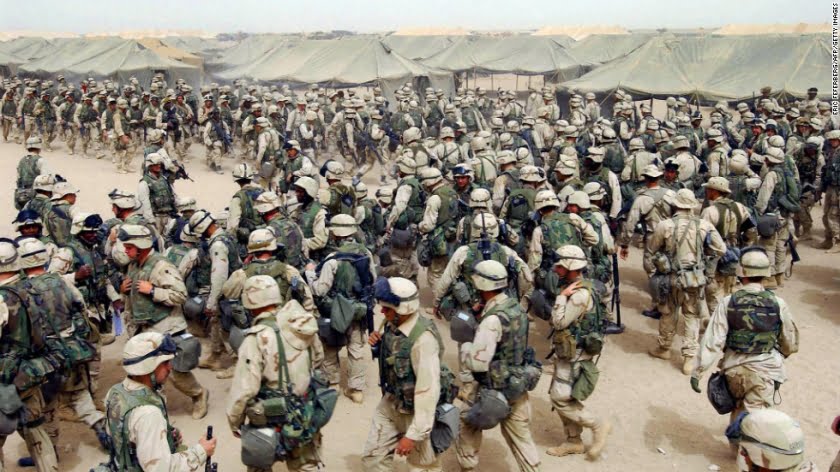It’s Official, “Israel” Is Now a Joint Russian-American Protectorate
Far from the seemingly “invincible” player that the Western Mainstream Media has propagandistically portrayed it as for years, “Israel” is actually so weak right now and extra vulnerable to Iranian-initiated destabilization operations that the New Cold War Great Power rivals of the US and Russia are putting their many differences behind them and historically joining forces to ensure its security.
Declaring The Joint Protectorate
Everything that the Western world previously assumed about “Israel’s” supposed “invincibility” has been exposed as a discredited propaganda operation that not even the US is capable of conducting anymore after the on-the-ground facts have disproven its very basis. Long thought of as the “Sparta” of Mideast affairs because of its military’s ability to punch well above its weight in regional conflicts and the efficient capabilities of its intelligence services in catalyzing the MENA-wide Yinon Plan of the so-called “Arab Spring”, “Israel” has now been exposed to have several glaring vulnerabilities that have put it in such a position of weakness vis-à-vis Iran that it’s now compelled to seek joint American and Russian assistance in ensuring its security.
During the joint press conference in Helsinki, President Putin proclaimed his long-known desire to protect “Israeli” interests by telling the world that:
“I would also like to note that after the terrorists are routed in southwest Syria, in the so-called ‘southern zone’, the situation in the Golan Heights should be brought into full conformity with the 1974 agreement on the disengagement of Israeli and Syrian forces. This will make it possible to bring tranquillity to the Golan Heights and restore the ceasefire between the Syrian Arab Republic and the State of Israel. The President devoted special attention to this issue today.”
Trump took it even further by adding that:
“We’ve worked with Israel long and hard for many years, many decades. I think that never has any country been closer than we are. President Putin also is helping Israel, and we both spoke with Bibi Netanyahu. And they would like to do certain things with respect to Syria, having to do with the safety of Israel. So, in that respect we absolutely would like to work in order to help Israel, and Israel will be working with us, so both countries would work jointly.
And I think that when you look at all the progress that has been made in certain sections with the eradication of ISIS – we’re about 98–99 percent there – and other things that have taken place that we have done and that, frankly, Russia has helped us within certain respects. But I think that working with Israel is a great thing, and creating safety for Israel is something that both President Putin and I would like to see very much.”
Beyond any shadow of doubt, the two Great Powers have made “Israel” their joint protectorate, and this surprising state of affairs has far-reaching implications for not just Syria, but the entire Mideast and especially Iran.
Yinon Gone Bad
To be succinct, the Yinon Plan dramatically backfired by creating the conditions for Iranian military “advisors” in Syria to creep closer to the occupied Golan Heights, a pressing security threat of the highest importance that could only be temporarily staved off by Russia’s greenlighting of “Israeli” bombing raids against them. Still, this isn’t a sufficient solution because it’s unclear exactly how many of these forces are in the region and whether or not they’re operating incognito as part of the “National Defense Forces” militias or even members of the Syrian Arab Army itself. Furthermore, Russia barely has any influence on Iran’s military plans in Syria no matter how much pressure Moscow has put on Damascus to curtail what the Kremlin views to be a regionally destabilizing factor.
The only way to sustainably secure “Israel’s” existence from the asymmetrical threat that Iranian forces and their Hezbollah allies pose near the occupied Golan Heights was for Tel Aviv to strike an indirect deal with Damascus through Russian mediation whereby the self-proclaimed “Jewish State” would implicitly recognize the continued leadership of President Assad in the Arab Republic so long as he could guarantee that his sworn enemy’s foes will be kept an uncertain distance away from the de-facto “border”. Getting “Israel” to back down from its years-long unofficial policy of regime change in Syria would be even more of a game-changer than when Saudi Arabia recently did the same, with Russia being responsible for both previously unthinkable policy reversals.
The Quid-Pro-Quo
The US is brought into the equation because it and “Israel” are essentially the same political entity on different continents, meaning that any Russian deal with one of them in Syria must naturally be cleared with, or at the very least coordinated with, the other. Moreover, the US is just as opposed to Iran’s direct and proxy military involvement in Syria as “Israel” is, which gives it a natural stake in ensuring that any speculated deal in southern Syria is respected by all the parties involved, especially Damascus. In exchange for President Assad’s cooperation, it’s conceivable that the US will put pressure on its Kurdish-led “Syrian Democratic Forces” (SDF) underlings to enter into talks with Damascus, which is about to happen according to recent reports.
The pieces of President Putin’s unofficial peace plan for Syria are gradually coming into place, with the most important component being Iran’s dignified “phased withdrawal” from the country, which has yet to happen in full but is evidently being advanced to a degree by its “containment” from southwestern Syria per the most likely terms of the US-Russian deal. Unlike the US, Russia is the only Great Power realistically capable of “balancing” Iran in a peaceful manner, which it was already doing even before the Putin-Trump Summit, but now Moscow is also playing a key role in doing the same with “Israel” as well by participating in a joint protectorate over it together with the US and therefore smashing all of the Mainstream Media’s stereotypes about its “invincibility”.
“Israel” is simply incapable of fighting what it fears could become a three-front war against another Palestinian Intifada inside of its “borders”, Hezbollah along the Lebanese one, and Iran in the Syrian one, so for the first time in its history it has to pick and choose its battles. Its leadership apparently decided that Syria is the least of its concerns and is the easiest to indirectly manage so long as it compromises on its position of regime change against President Assad as part of a Russian-mediated deal, which therefore makes Moscow a guarantor of its security via its predominant influence over Damascus’ compliance with this arrangement. To be clear, no party is “selling out” to any other, but it’s just that they’re all advancing their own interests.
Trust No One Except Your Own Interests
President Putin put it best when responding to a question during his news conference with Trump, when he wisely said that:
“Should you or should you not have trust in someone? Can you trust anyone in general? No you can’t. Why on Earth do you think the President [Donald Trump] trusts me and I fully trust him, too? Donald Trump defends the interests of the US and I defend Russia’s interests. We have some common interests and points of contact. Along with it, we have the issues on which we still differ and we’re looking for ways of bridging these differences and making our efforts fruitful.”
The same principle of Hyper-Realism that’s influencing Russia’s decisions on the “19th-Century Great Power Chessboard” could also be applied towards Syria, which has no reason to trust President Putin or especially Netanyahu, but is bridging the differences that it has with “Israel” through Russian mediation in order to expand their common interests and points of contact in such a way that their efforts will be fruitful. From theory to practice, this means that President Assad wants “Israel” to strategically surrender by abandoning its regime change plans and resultantly relieving the Arab Republic of the immense Zionist-backed pressure that it’s been incessantly under, with the trade-off of denying Iranian forces the freedom to operate in southwestern Syria apparently being acceptable to Damascus under these conditions.
Weak, Weaker, And The Weakest
While Syria might look “weak” for “caving into” the “international community’s” demands, it’s actually “Israel” that comes out looking weaker by comparison because it had to rely on Russia to protect its interests by facilitating this development, which not even its decades-long American ally was capable of achieving. Keeping Iran away from the occupied Golan Heights is the first step in its dignified “phased withdrawal” from Syria, and the fact that this is even happening shows just how little influence Tehran has over Moscow nowadays when considering that the Ayatollah’s influential advisor Ali Akbar Velayati was just in the Russian capital lobbying for this exact same scenario not to happen. If anything, Iran is emerging from all of this looking weaker than both Syria and “Israel” because its rhetoric was just exposed as theatrics.
As a perfect example, the second-in-command of the IRGC boasted in June in response to “Israel’s” bombing of the T4 base in April that (underlined emphases are the author’s own):
“They imagined that they would not receive any response; they thought that they can intimidate the Resistance Front with US and British support, and that no one would respond to them. As you all witnessed, they said if we (the Resistance Front) retaliated, they would put an end to the Syrian government; but they received a response in the Golan, and dozens of missiles flew over the region. A message was sent to them that if they responded, we would raze to the ground the heart of Tel Aviv; they were forced to shut up, and haven’t done a damn thing since then.”
This might go down in history as one of the most premature statements ever because “Israel” just bombed northern Aleppo right after Netanyahu’s latest visit to Moscow and it was actually Iran which “was forced to shut up, and hasn’t done a damn thing since then”. If “over-zealous” Alt-Media “perception management” operations attempt to portray Syria as being weak for quietly agreeing to keep Iran away from the occupied Golan Heights , then they’d do best to consider exactly how weak it makes Iran look that it would taunt “Israel” for not responding to a certain event but then not even give its own response when Aleppo is bombed or its forces are pushed back from the “Israeli” frontier. Syria might look “weak”, “Israel” even “weaker”, but Iran appears to be the “weakest” in this ignoble “hierarchy”.
Turning The Tables
Actually, however, it might be that the tables are turning because Iran has been pretty strong up until now, and it exerts such a powerful sway over Mideast affairs at the moment after masterfully exploiting the many failings of “Israel’s” Yinon Plan that Russia felt compelled to “balance” against it to Tel Aviv’s favor. It’s still too early to say whether the perception of Iran being the weakest in comparison to Syria and “Israel” is true or not, but it might just be that the Putin-Trump deal is designed to “correct” what both Great Powers feel is this regional “imbalance”. It should be remembered that Trump told reporters before the summit that Iran would be on the agenda, and Russian Foreign Minister Lavrov praised the two leader’s talks by describing them as “better than super”, implying that they saw eye-to-eye on this topic too and probably agreed to secretly coordinate on it as well.
If there’s indeed another strategic reversal taking place (or rather, a counter-reversal or “correction”) whereby “Israel” is regaining its regional influence with the help of its American and Russian protectors, then it’ll still take some time to fully unfold, and the process itself leaves Russia in an excellent position full of strategic flexibility to shape the final outcome. Being the only country in the world that has great relations with both of these rival parties, Russia is the only player capable of managing their competition and guiding it in the direction of its own envisioned interests, which is to make Moscow the supreme “balancing” force in the Mideast by preventing either party from ever getting to the point where one of them regains their previously dominant role in the region. Rather, if Russia gets its way, then it will be Moscow –not Tel Aviv nor Tehran – that determines the contours of the “New Mideast”.
Concluding Thoughts
The Russian and American leaders’ de-facto declaration that “Israel” is now their joint protectorate is a watershed event in Mideast history because it disproves the Mainstream Media narrative about that entity’s supposed “invincibility” while simultaneously confirming the success of Moscow’s regional “balancing” strategy, which is now being put to use against “Israel” just as much as it is against Iran. President Putin has finally obtained his goal of making Russia the ultimate arbiter of regional affairs by making both rival parties dependent on Moscow for their security, which in turn has resulted in the Kremlin replacing the White House as the architect of the “New Mideast”. That’s not to say that it’ll be “smooth sailing” from here on out, but just that a game-changing process is currently underway, one which caught many observers completely off guard.
It’s difficult – and for some, almost painful – at first thought to even countenance “Israel” as being anything other than an American protectorate, but the times have surely changed and Russia’s alliance with that entity is more solid than ever, with the strength of their ties now on public display by having the US President himself openly agree to giving his geopolitical “competitor” joint management over his country’s most valuable piece of real estate in the world. Iran must understandably be feeling restless after seeing this happen and realizing that its rhetoric was exposed as theatrical bluster, to say nothing of the failure of the Ayatollah’s top envoy to prevent this from happening during last week’s panicked visit to Moscow. The tables are turning on the Islamic Republic, slowly but surely, but that shouldn’t be interpreted as though Russia itself “turned” on its partner.
Like President Putin emphasized during the press conference, interests are all that matter, and he will always do whatever he can to support what he sincerely believes is the best course of action for his country, even if this ends up seeing Russia’s position on some issues align with America’s like the US has been trying very hard to have happen since Trump entered into office. The same principle is just as applicable for Syria, “Israel”, and Iran, with none of their leaders “selling out”, but each competing with one another in the Hyper Realist “19th-Century Great Power Chessboard” to advance and protect their interests, though in this context through Russian mediation and other methods of influence over the “rules of the game”. The outcome of this grand struggle is uncertain, but one thing is clear, and it’s that Mideast geopolitics will never be the same again now that the US and Russia jointly established a protectorate over “Israel”.







